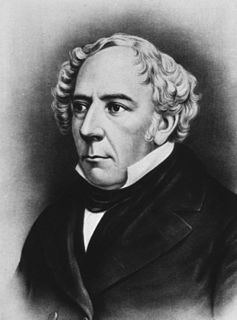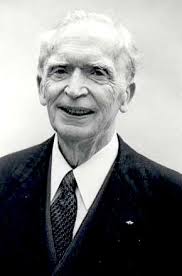A Quote by William James
Theory must mediate between all previous truths and certain new experiences
Quote Topics
Related Quotes
Each new ontological theory, propounded in lieu of previous ones shown to be untenable, has been followed by a new criticism leading to a new scepticism. All possible conceptions have been one by one tried and found wanting; and so the entire field of speculation has been gradually exhausted without positive result: the only result reached being the negative one above stated, that the reality existing behind all appearances is, and must ever be, unknown.
"We hold these truths to be sacred and undeniable" in a draft of the Declaration of Independence changes it instead into an assertion of rationality. The scientific mind of Franklin drew on the scientific determinism of Isaac Newton and the analytic empiricism of David Hume and Gottfried Leibniz. In what became known as "Hume's Fork" the latters' theory distinguished between synthetic truths that describe matters of fact, and analytic truths that are self-evident by virtue of reason and definition.
Relativity was a highly technical new theory that gave new meanings to familiar concepts and even to the nature of the theory itself. The general public looked upon relativity as indicative of the seemingly incomprehensible modern era, educated scientists despaired of ever understanding what Einstein had done, and political ideologues used the new theory to exploit public fears and anxieties-all of which opened a rift between science and the broader culture that continues to expand today.
I believe we should really take our own phenomenology more seriously. What a good theory of conscious must explain is the variance in this subjective sense of realness: There clearly is a phenomenology of "hyperrealness", for example during religious experiences or under the influence of certain psychoactive substances.
It is not enough for theory to describe and analyze, it must itself be an event in the universe it describes. In order to do this theory must partake of and become the acceleration of this logic. It must tear itself from all referents and take pride only in the future. Theory must operate on time at the cost of a deliberate distortion of present reality.
Our decisions need not be seen as resting on procedures that are merely instrumental in making judgments that are reliably truth-tracking. The procedures might be more directly related than that to truths about what is right or good, or about what we ought to do, or to principles that tell us what is true about these matters. And I have no metaphysical theory about the truth-conditions of such truths, except to say that as objective truths, they must be independent of the attitudes, decisions or actions that they are supposed to justify or for which they are to offer reasons.
LSD is a unique and powerful tool for the exploration of the human mind and human nature. Psychedelic experiences mediate access to deep realms of the psyche that have not yet been discovered and acknowledged by mainstream psychology and psychiatry. They also reveal new possibilities and mechanisms of therapeutic change and personality transformation.
All our thoughts and concepts are called up by sense-experiences and have a meaning only in reference to these sense-experiences. On the other hand, however, they are products of the spontaneous activity of our minds; they are thus in no wise logical consequences of the contents of these sense-experiences. If, therefore, we wish to grasp the essence of a complex of abstract notions we must for the one part investigate the mutual relationships between the concepts and the assertions made about them; for the other, we must investigate how they are related to the experiences.
You grow old when you lose interest in life, when you cease to dream, to hunger after new truths, and to search for new worlds to conquer. When your mind is open to new ideas, new interests, and when you raise the curtain and let in the sunshine and inspiration of new truths of life and the universe, you will be young and vital.
I'm aware of narrating certain experiences as they happen or obliterating those experiences with narrative and then those stories - not the experiences themselves - might become material for art. This kind of transformation shows up a lot in 10:04 because the book tracks the transposition of fact into fiction in the New Yorker stor










































